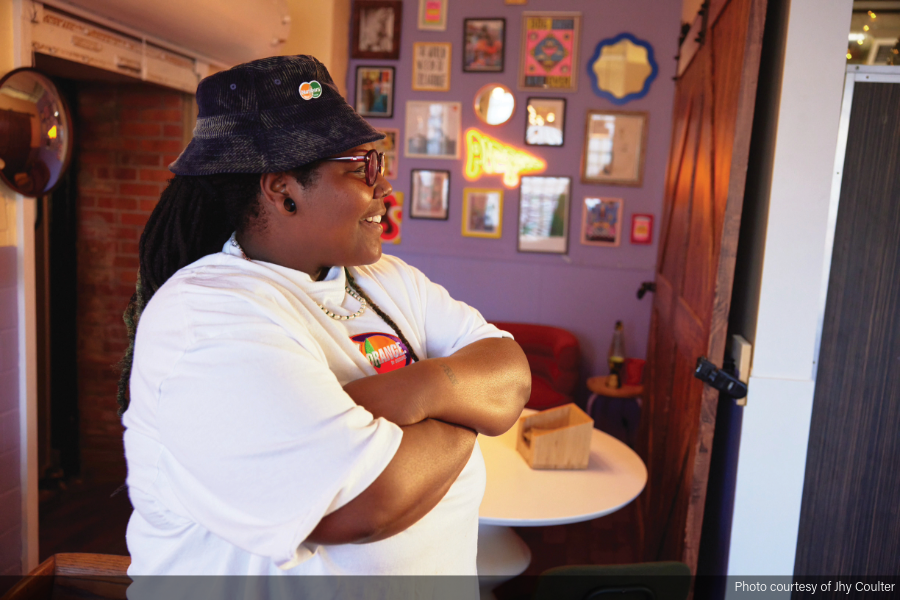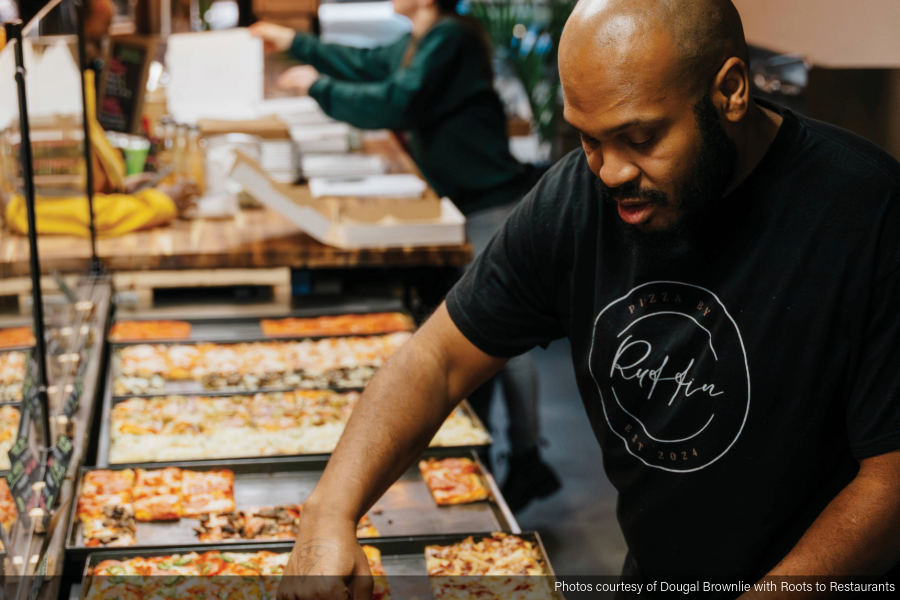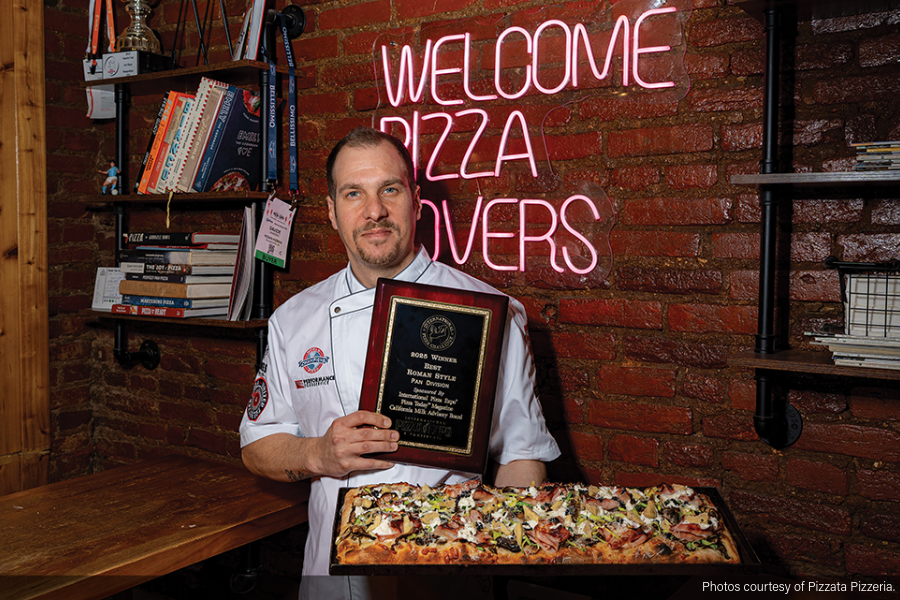 Should you monitor your employees’ social media use?
Should you monitor your employees’ social media use?
Admit it: you’ve Googled people you know to find out more about them, and you’ve used Facebook to look up old friends without actually contacting them. You might even have used social media to do a quick background check on a job candidate, or to help you see what employees have said about your workplace. Using Facebook, Twitter, YouTube and other sites can be an efficient way to research people, but you have to be cautious about how you use the information.
A survey by CareerBuilder indicated that 45 percent of employers said they use social networking sites to research job candidates, and another 11 percent said they plan to start doing so.
Kurt Drennen Mirtsching, whose title is Head Cheese at the two-unit Shakespeare’s Pizza in Columbia, Missouri, says that sounds like a good idea, but he hasn’t tried it. “I don’t think there would be anything wrong with that,” he says. “If they put information on Facebook for the public to see, they are allowing people to see it.”
Some Facebook users don’t publicize everything. Instead they “friend” people to let them view more personal content. Mirtsching thinks that information is more useful for friends than for potential bosses. “Some employers say it’s a requirement that you need to friend me,” he says. “I think that is inappropriate. It’s like saying, let me read your diary.”
Jerry Thurber agrees. He’s senior vice president of product innovation and development for Sterling Infosystems Inc., a pre-employment screening service based in New York City. “We absolutely recommend against ever friending anybody when recruiting them,” he says. “There is enough information in the public space.”
Often there is too much information. “Social media offers a wealth of valuable data clouded by irrelevant information,” Thurber says. “The real challenge is to understand how to edit out or avoid the irrelevant information.”
For example, one relevant area would be trustworthiness. “If you find people brag that they cheated their boss today, that’s a red flag,” Thurber says.
Other details are not relevant. “An employer should be careful of information they look for online because some of it should not be used for hiring,” says Daniel A. Schwartz, an attorney with Pullman & Comley LLC in Hartford, Connecticut. “Say they participated in a gay pride parade. There are laws prohibiting discrimination based on sexual orientation.”
According to the CareerBuilder survey, the top reasons employers did not hire people after viewing their social media presence were that the candidate posted inappropriate photos or information, the candidate posted content about them drinking or using drugs, or the candidate badmouthed their previous employer.
Sometimes people complain about current employers, so some companies have developed social media guidelines and added them to their employee handbooks. Schwartz cautions that there are limits to what these rules can say. Last August, the National Labor Relations Board released a report on 14 cases of people who were fired over their social media activity. In several cases, the NLRB found that the workers were wrongfully terminated because the employers’ rules, such as one prohibiting “inappropriate discussions,” were overly broad. A better rule, Schwartz says, would be one against posting pictures of customers without their knowledge, or posting confidential information, or making discriminatory or harassing posts.
In other cases, the NLRB found the employees should not have been terminated because they were engaged in “protected concerted activity,” which means conversations about improving the working conditions for the benefit of other employees.
Of course that wasn’t the case in certain highly publicized firings. In 2010, a waitress at a Brixx Pizza location in Charlotte, North Carolina, was fired after complaining on her Facebook page about having to stay hours after her shift ended to serve one table of customers who left her a paltry tip. Also in 2010, a server at a California Pizza Kitchen in Long Beach, California, was fired after complaining (with expletives) on Twitter about the new uniforms. In both cases, the employees violated specific rules, such as one about disparaging customers.
Tim McIntyre, vice president of communications for Ann Arbor, Michigan-based Domino’s Pizza, says the chain’s rules and guidelines encourage employees to show restraint. “We know you’re going to be on there,” he says of social media. “If you identify yourself as a Domino’s employee, we ask if you have a problem with your boss or your manager or something that is related to the office or the store, please use the established systems we’ve set up for you.” One system, he says, is the toll free number to the human resources department.
The rules also concern representing the brand. “If you feel compelled to go to a bar, please don’t wear a shirt with the Domino’s logo and then post inappropriate pictures of yourself,” McIntyre says. “We own the trademark.” Domino’s uses Google alerts and other technology to monitor online chatter about the chain and about competitors Pizza Hut and Papa John’s Pizza.
Mirtsching says Shakespeare’s Pizza does not have a policy on social media. If someone did complain online, he would likely talk to the worker. “I would probably say, ‘If you’ve got problems, don’t tell the whole world because then it sounds like you’re just complaining. Tell us and we can do something about it.’ ”
Franchise Issues
If an employee uses social media to deride your business, it gets tricky if the complainer works not for you but for one of your franchisees. Tim McIntyre, vice president of communications for Ann Arbor, Michigan based Domino’s Pizza, says if an employee at one of the 4,200 franchised locations does something inappropriate online, it’s up to the franchisee to take action. “We don’t manage with a hammer,” McIntyre says. “We don’t get involved in their HR policies and practices.” In a 2009 incident that has been covered exhaustively, two workers at a North Carolina franchise posted a hoax video on YouTube, and were fired by the franchisee.
Nora Caley is a freelance writer specializing in food and business topics. She lives in Denver, Colorado.
 Should you monitor your employees’ social media use?
Should you monitor your employees’ social media use?





